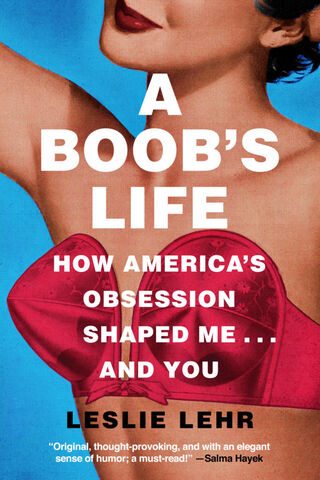Health
Why Aren't Women Satisfied With Their Breasts?
We should care about women's breast dissatisfaction.
Posted April 23, 2021 Reviewed by Ekua Hagan
Key points
- The majority of women are dissatisfied with the size of their breasts.
- Women with large breasts tend to receive more attention than women with smaller breasts.
- Women who are dissatisfied with their breasts are less likely to engage in breast self-exams.
- Women should take care of their breasts for the sake of their health.
The majority of women are dissatisfied with their breasts. That’s the takeaway from a cross-country study of almost 19,000 women from 40 different countries. Nearly half (47.5%) wanted larger breasts while 23% wanted smaller breasts. That leaves a minority of women actually satisfied with their breasts. Where does this dissatisfaction come from and what can be done about it?
Evolutionary and cultural explanations have been offered for our interest in breasts and breast-related concerns. However, I can’t help but wonder if humans’ breast obsession isn’t pretty basic.
Bigger Breasts Garner More Attention
We see breasts all around us; a certain size is admired (big) and there are benefits available to those who possess the best breasts. “Nah,” you may be thinking. “We’re not that superficial. We don’t care that much about the size of women’s breasts!” Yet, the results of another set of experiments, which actually had a woman wear different bras that enhanced her breast size to varying degrees, found that as the woman’s breasts increased, so did the number of men who approached her in a nightclub or bar. In other words, increasingly bigger breasts garner increasingly more favorable attention.
It’s no wonder that women who are dissatisfied with their breasts often pursue cosmetic surgery. Since 2006, breast augmentation has been the most popular cosmetic procedure in the U.S., with nearly 5% of all women in the U.S. having this surgery.
As a body image researcher, I’ve been resistant to this “solution,” especially with data suggesting the long-term benefits of cosmetic surgery are limited. Although increased satisfaction with a particular body part may result from surgery, most people approach cosmetic enhancement with the hopes of higher body satisfaction, self-esteem, and even happiness. The data don’t suggest that improved mental health is a likely result of surgery. However, maybe improved breast satisfaction is enough?
Breast Dissatisfaction Is a Public Health Concern

Leslie Lehr tackles this breast obsession in her new book, A Boob’s Life: How America’s Obsession Shaped Me … and You. Part memoir, part historical and sociocultural account of why we value breasts, Lehr is a feminist who grasps the complexities of wanting to look good while still being valued for much more than your bra size. She’s also a breast cancer survivor.
It turns out breast satisfaction and breast cancer survival may be related. Research has found that women who are more satisfied with their breast size are more likely to engage in breast self-exams and more likely to consult with a doctor when they notice changes in their breasts.
Lehr felt perfectly healthy when she learned that she had breast cancer and credits a routine mammogram and the doctors who treated her with saving her life. In her book, she describes how cancer led her to a newfound appreciation for the importance of self-care and the links between her physical and psychological well-being. She implores women to take good care of their breasts — for the sake of their health.
Viren Swami, a professor at Anglia Ruskin University and Perdana University who led the international study of breast satisfaction, suggests that “breast size dissatisfaction is now a public health concern in many parts of the world. It has important consequences for the psychological and physical well-being of women."
As Lehr reminds us, “1 in 8 women will get breast cancer and over 42,000 American women will die of breast cancer this year.”
Perhaps, the goal should not be for women to not pay attention to their breasts nor to stop caring about them. In fact, they should care very much about them — but just less about how they look.


